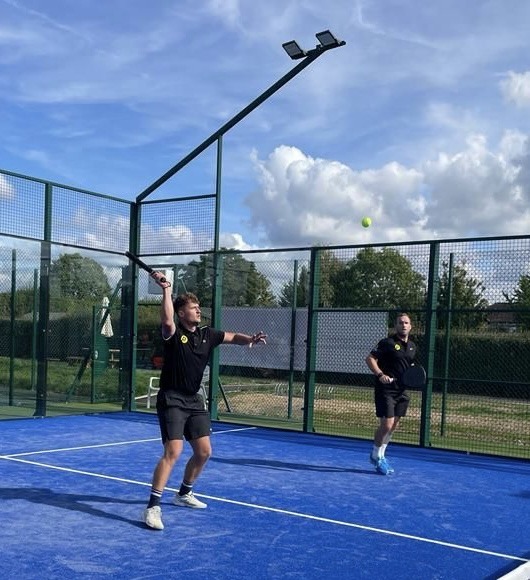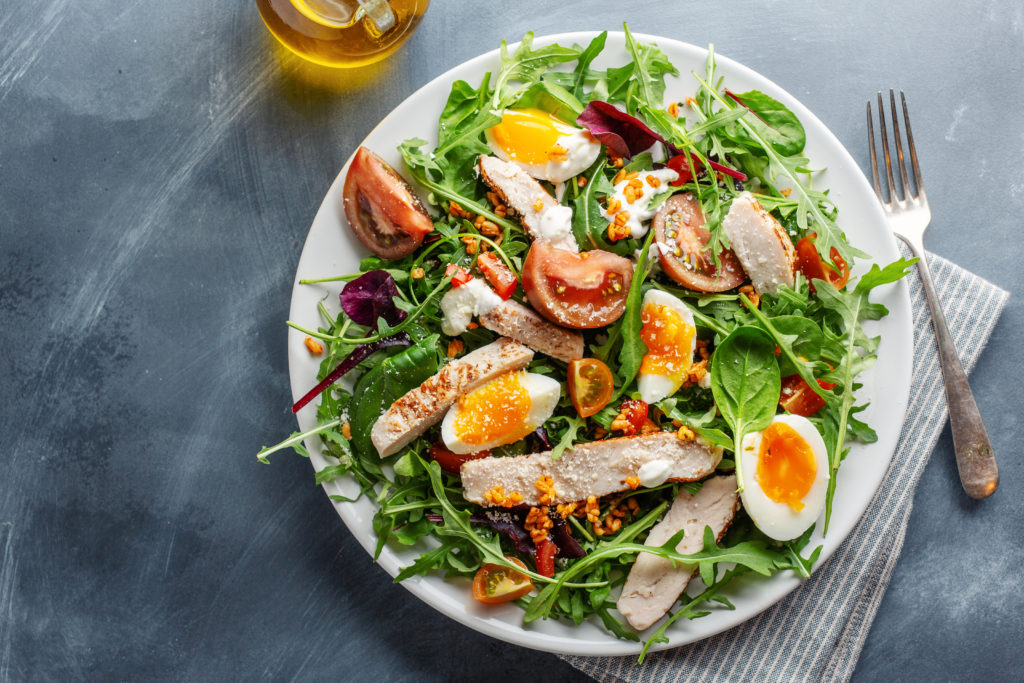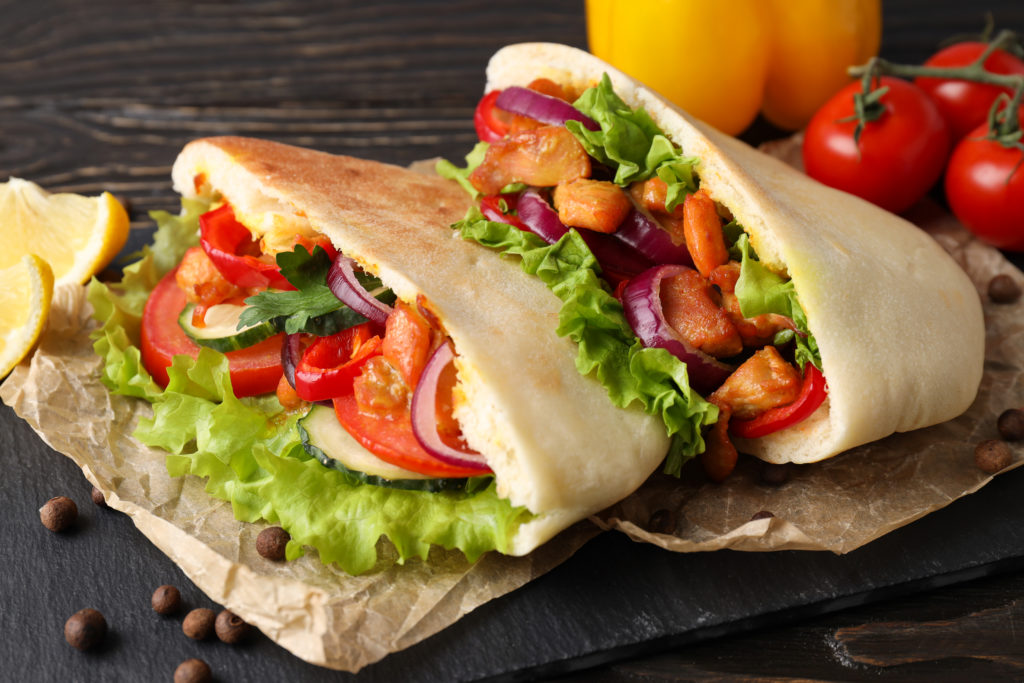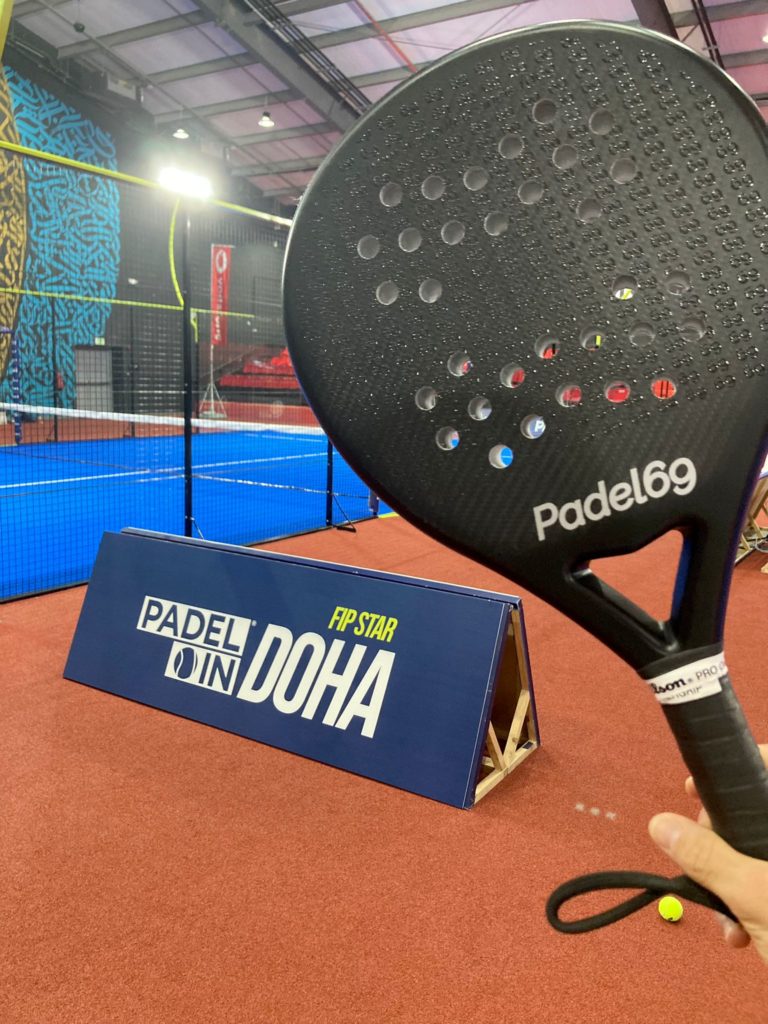Have you ever heard about the famous saying?
‘You Are What You Eat!’
This concept provokes many emotions while compelling you to take an instant action for your health. Whether you’re working out in the gym or participating in sports – good nutrition cannot be ignored.

The Padel Game: A Brief Overview
Padel is a sport close to tennis, capable of improving physical fitness and developing cognitive and motor skills. In this mixed sport, the body requires both aerobic and anaerobic performance that uses plenty of energy. Padel is also quite different as the game has 3D dimensions, because of the walls like in Squash. Therefore, keeping a good eye on your energy intake is crucial for success. [i]
How Good Nutrition Optimizes Your Padel Performance?
Like all other sports, an array of factors contribute to the outstanding performance of Padel players. Nutrition is also one crucial piece of this puzzle. It prepares your body to dominate even the most powerful opponents!
Keep reading the article to find out what foods can boost your performance in Padel sport.
Foods to Maximize Your Performance
In addition to maintaining optimal hydration levels, several foods should be consumed to maximize performance.
Macronutrients
Macronutrients provide athletes with the energy they need to excel at every level of the sport. These macronutrients include; [ii]
- Carbohydrates
- Proteins
- Fats
Taking a deeper look at these macros will help you determine which ones will better enable you to achieve your goals.

1. Carbohydrates
Consuming high concentrations of carbohydrates can generate and maintain muscle glycogen levels. The body quickly breaks down these components to provide vital energy during the game. [iii]
According to Harvard Health, carbohydrates can be found in foods like;
- Whole Grains (Whole Wheat, Oats, Barley, Quinoa, Brown Rice)
- Vegetables (Potatoes, Broccoli, Corn Brussels Sprouts)
- Beans, Lentils, Peas, And Chickpeas
2. Proteins
Proteins are equally vital for energy and muscle repair. They provide amino acids to the body that are essential for muscle protein synthesis. Proteins also help repair, restore and strengthen the muscle tissue, enabling you to perform exceptionally in Padel. They are also responsible for faster recovery after an intense sport. [iv]
According to Harvard Health, some foods rich in proteins are;
- Animal Proteins (Chicken, Fish, Turkey, Lean Beef)
- Dairy (Milk, Yogurt, Cheese)
- Plant-Based Proteins (Tofu, Tempeh, Nuts, Seeds, Legumes, Beans, Chickpeas, Peas)
3. Fats
Dietary Fats offer performance benefits to Padel players in crucial functions like energy production, metabolic functioning, blood lipid management, and hormone production.
The consumption of dietary fats helps absorb vitamins and minerals and aids in hormone production responsible for optimal athletic performance. [v]
According to Harvard Health, foods that are the sources of Dietary fats;
- Vegetable Oils (Olive, Canola, Sunflower, Soy)
- Nuts And Seeds (Walnuts, Cashews, Almonds, Chia, and Flax seeds)
- Fish (Salmon, Trout)
- Avocado And Olives
Hydration
The importance of hydration for athletes cannot be overstated. The core body temperature increases in sports activities, resulting in dehydration and heat stroke if not monitored. If you don’t refuel or rehydrate before, during, and after Padel, this dehydration can have detrimental consequences on your performance.
Keeping yourself hydrated before, during, and after the game is crucial to maximizing your performance.
Drinking plenty of water can be beneficial in a number of ways; [vi]
- Lowers the rising core body temperature
- Maximize performance and recovery
- Prevents muscle cramping, heat stroke, and exhaustion
The Complete Guide to Nutrition in Padel
What to Eat and When to Eat?
Eating a balanced diet and optimizing your caloric intake can significantly help Padel training. It’s pretty essential to take notice of the timing when you eat.
We have compiled a complete list of foods to help you replenish your energy stores before, during, and after the tournament!
What to Eat In Breakfast?
Padel is a sport that can be played at any time of the day. Therefore, keeping track of your food intake is crucial to ensure you’re at your best during the tournament.
Below are some food choices you can make before the match;
Morning – If Padel is to be played in the morning, make sure to eat your breakfast 1-2 hours before the match. Foods that are easy to digest and are a good source of simple and complex carbs are preferred during this time.
Try these foods as breakfast;
- Omelet with whole wheat toast and fruit juice
- Boiled Egg sandwich with vegetable of choice
- Oatmeal bowl with fruits and nuts
- Protein Pancakes (add protein powder) with honey and butter
- Peanut butter toast and fruit of your choice
- Smoothies with a good protein source
What to Eat As a Snack?
Try to go for a filling breakfast with the food combos mentioned above, followed by a good and healthy snack at lunchtime. These snacks can include;
- Fruit or fruit salad topped with seeds and nuts
- Energy bars
- Protein shake
- Chocolate milk
- Greek yogurt cups
- A light chicken sandwich
- Vegetables with hummus
What to Eat In Lunch?

Early Afternoon – If the tournament is in the early afternoon, have your breakfast at around 8 a.m. and lunch at around 11–12 p.m. You can eat anything like;
Eat the main course and a side dish.
- The main course can be anything like; Chicken (or any protein of choice) pasta, grilled chicken (protein) sandwich, Panini, or a protein gravy with whole wheat tortilla
- Add a vegetable and fruit salad as a side dish
- It is also suggested to take a dairy source with your meals, so consider having flavored yogurt, or you can add fresh cheese to your main course or salad.
You can add any herbs or seeds to maximize the nutritional value of your yogurt.
Late Afternoon – The match is scheduled in the late afternoon; the meal plan can comprise of;
- Brown rice or whole wheat pasta with chicken or salmon with grilled veggies and hummus
- A little snack like biscuits, energy bar, or energy drink
Try to keep at least 1-2 hours of gap between your meals and the game to help the body metabolize everything. For instance, if your match is due at 2 p.m. you can eat your lunch at around 12 p.m.
What to Eat In Dinner?
Evening – If the tournament is taking place in the evening, you can eat;
- Pair any protein with a carb like chicken and lentil soup with breadsticks, fatty fish with whole wheat tortilla, lean ground beef meatball spaghetti, or beans or chickpea salad.
- Snacks like Greek yogurt cups, any fruit of choice, protein shake, energy drink, or energy bar

What to Eat During the Match?
During the match, your body gets dehydrated and your energy is continuously burning. Hence, always keep replenishing your hydration and energy stores with high-carb foods and drinks. Foods with a high glycemic index like biscuits, granola, an energy bar, and electrolyte drinks are highly beneficial during a Padel.
Bonus Tip: You should never forget to put these 3 things in your Padel bag because they are essential during the match;
- Water bottle – Keep hydrating yourself during the match to avoid early fatigue
- Banana – Contains a high percentage of potassium and magnesium
- Dry fruits – Consists of a high carbohydrate content to provide instant energy
What to Eat After the Match?
After the game, your body acts like a sponge, ready to absorb and refuel the vital nutrients lost during the match. So it’s equally important to treat your body with the best nutrients post-Padel.
- Consume meals rich in protein content to speed up the recovery process
- Drink an adequate amount of water or electrolyte drinks to top up the hydration
Eating high-protein foods stops the catabolic process that causes muscle damage and lactic acid accumulation after the match. But eating high-protein foods after the game can help initiate the anabolic process of the body. Hence, stimulating muscle repair.
Another bonus tip is to wear compression garments afterward or try to stay moderately active after the game. Active recovery keeps the blood flowing in your muscles which stops lactic acid accumulation and prevents muscle cramping.
What Not to Eat Before Match?
Sometimes, food might not always be your best companion. A few foods can sabotage your game spirit if eaten before the match. Thus control your food cravings if you want to win the match.
Try to avoid the items mentioned below and avert any future inconvenience.
- Fatty foods like French fries, hamburgers, chicken strips, or any fast food take longer to digest
- Artificial sweeteners, including sucralose, can mess with your stomach and upset your digestion
- Spicy foods can cause acid reflux so avoid that at all costs!
- Eat moderately before the match and avoid overeating because the excess food can cause stomach upset which you absolutely don’t want right before the match!
Wrapping It Up!
Undoubtedly, we must say that taking care of diet in Padel sport is equally important as any other sports activity. Whatever you eat has a direct impact on how you play. So, try to follow all the instructions mentioned above to yield the best results in Padel.
Visit our website PADEL1969 to discover all the information you need about the Padel sport.
Padel is a game of skill, but can it be won with the right nutrition alone?
Maybe yes, and maybe not!
It is imperative to consume quality nutrition for a match to be successful, but it is also imperative to invest in high-quality equipment.
PADEL1969 strives to help Padel players achieve the heights of success by educating and providing people with reliable information and the highest-quality Padel gear.
Join the community of PADEL1969 today and ride along with us to become the top Padel player!
Visit our store today to get your hands on the finest Padel equipment.
Welcome to the social community of PADEL1969.
Best regards,
Señor Alejandro
Sources of the article for further reading.
[i] Sánchez-Alcaraz, B. J., & Courel-Ibáñez, J. (2022). The Role of Padel in Improving Physical Fitness and Health Promotion: Progress, Limitations, and Future Perspectives-A Narrative Review. International journal of environmental research and public health, 19(11), 6582. https://doi.org/10.3390/ijerph19116582
[ii] Valenta, Rudolf & Dorofeeva, Yulia. (2018). Sport nutrition: The role of macronutrients and minerals in endurance exercises. Foods and Raw Materials. 6. 403-412. 10.21603/2308-4057-2018-2-403-412.
[iii] Kanter M. (2018). High-Quality Carbohydrates and Physical Performance: Expert Panel Report. Nutrition today, 53(1), 35–39. https://doi.org/10.1097/NT.0000000000000238
[iv] Jäger, R., Kerksick, C. M., Campbell, B. I., Cribb, P. J., Wells, S. D., Skwiat, T. M., Purpura, M., Ziegenfuss, T. N., Ferrando, A. A., Arent, S. M., Smith-Ryan, A. E., Stout, J. R., Arciero, P. J., Ormsbee, M. J., Taylor, L. W., Wilborn, C. D., Kalman, D. S., Kreider, R. B., Willoughby, D. S., Hoffman, J. R., … Antonio, J. (2017). International Society of Sports Nutrition Position Stand: protein and exercise. Journal of the International Society of Sports Nutrition, 14, 20. https://doi.org/10.1186/s12970-017-0177-8
[v] Lowery L. M. (2004). Dietary fat and sports nutrition: a primer. Journal of sports science & medicine, 3(3), 106–117.
[vi] Judge, L. W., Bellar, D. M., Popp, J. K., Craig, B. W., Schoeff, M. A., Hoover, D. L., Fox, B., Kistler, B. M., & Al-Nawaiseh, A. M. (2021). Hydration to Maximize Performance and Recovery: Knowledge, Attitudes, and Behaviors Among Collegiate Track and Field Throwers. Journal of human kinetics, 79, 111–122. https://doi.org/10.2478/hukin-2021-0065

